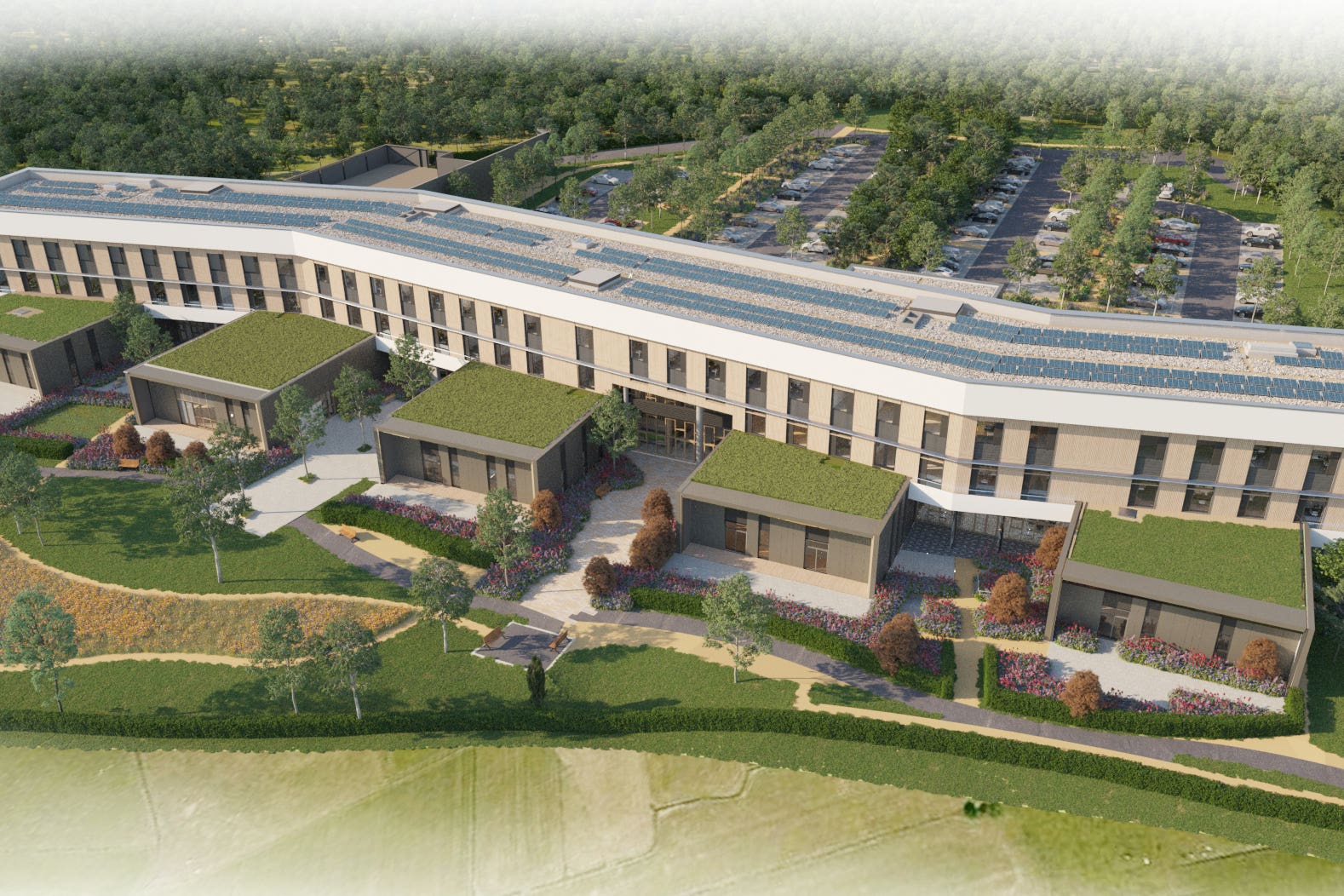Pioneering facility to ‘transform how we provide clinical rehabilitation’ in UK
The centre will work alongside the adjacent defence facility, which opened in 2018.

Patients who are suffering from serious injury and illness could be given a new lease of life thanks to a pioneering new facility being built in Leicestershire.
The National Rehabilitation Centre (NRC) will be a purpose-built, 70-bed facility that is expected to open its doors to NHS patients from 2025.
The specialist site is being built on the Stanford Hall Rehabilitation Estate near Loughborough, 400 metres away from the existing Defence Medical Rehabilitation Centre, which opened in 2018 for members of the armed forces.
The centre will be staffed by the Nottingham University Hospitals NHS Trust (NUHT) and will act as a national hub for those recovering from serious injury or debilitating illness, helping them restore their quality of life.
The first tours of the construction site were held on Wednesday, hosted by the Duke of Westminster, whose father initiated the idea for the centre.
Nick Carver, chair of Nottingham University Hospitals NHS Trust, said: “It has been a pleasure to welcome some of our key stakeholders to the Stanford Hall Rehabilitation Estate for the first time to view the progress of the NRC’s construction and to hear more about this pioneering programme.
“The NRC will be significant both for our patients recovering from life-changing illnesses or injury, as well as for the national and international development of the rehabilitation speciality, and I am very proud that it is NUH who are leading the way in this vital field.”
This long overdue centre will push the boundaries of rehabilitation for the next generation
The funding for the site was approved by the Government last month, with the project being supported by the University of Nottingham and Loughborough University.
It is hoped that by building the NHS centre next to the defence site, expertise and research can be shared to improve patient outcomes, with the rate of the general population who return to work from illness and injury currently half of that of the armed forces.
The NHS facility, which will have net zero carbon emissions, will primarily treat patients from the East Midlands, but it is hoped more centres can be rolled out across the country.
Miriam Duffy, NRC programme director at NUHT, said: “The National Rehabilitation Centre will transform how we provide clinical rehabilitation in this country.
“This long overdue centre will push the boundaries of rehabilitation for the next generation and bring real impact in terms of helping people to realise their full potential following injury or illness.
“A huge amount of care and research has gone into developing this unique rehabilitation centre to ensure that it will support our patients’ needs, and so it is especially exciting to see the designs now becoming a reality.
“I’d like to thank everyone who has been involved in this inspiring project so far, and I look forward to welcoming everyone back once we are ready to open our doors to our first patients.”
Bookmark popover
Removed from bookmarks